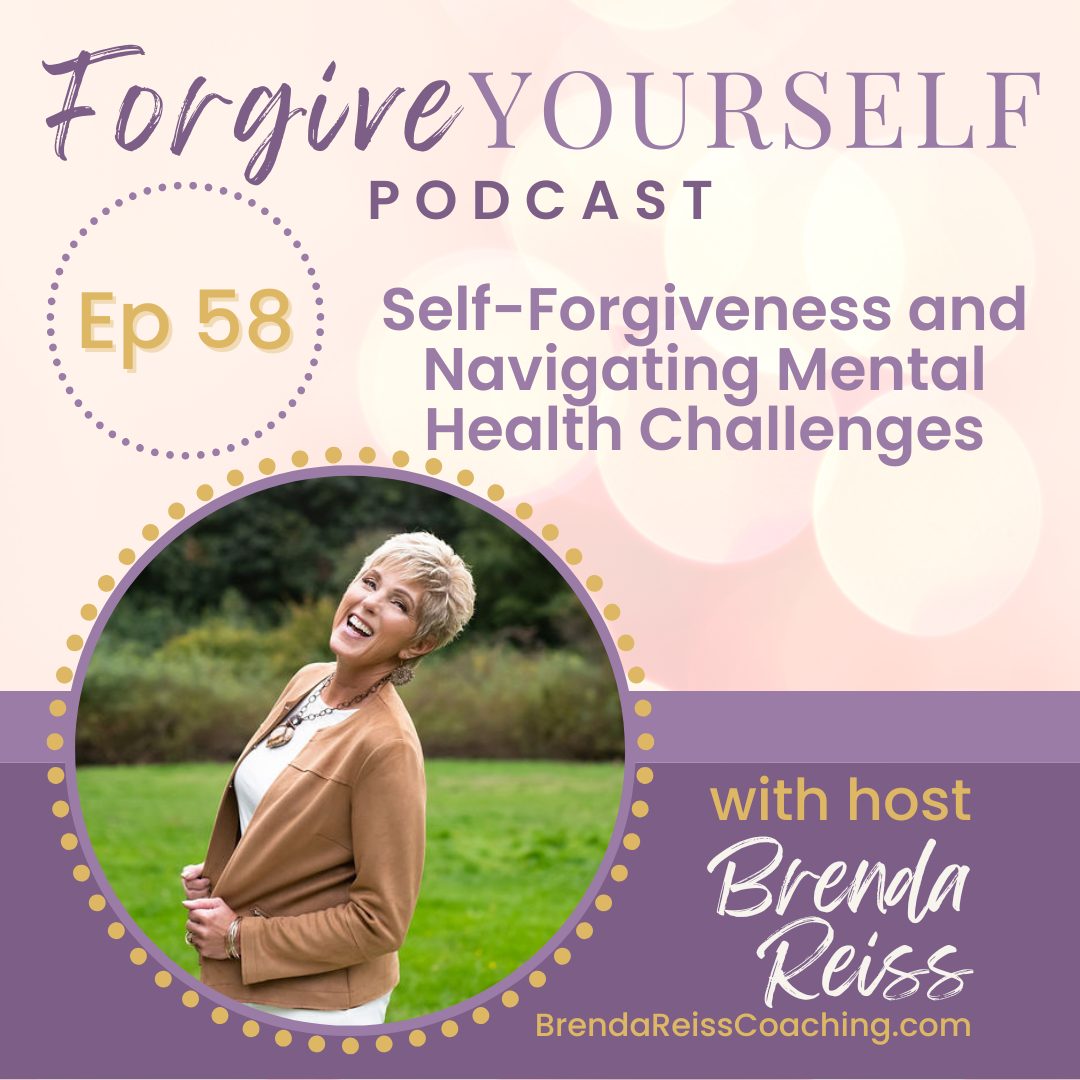Self-forgiveness isn’t just an act of kindness to ourselves. It’s necessary for our mental well-being.
In this powerful episode, I delve into the transformative journey of self-forgiveness – a topic close to my heart and crucial for our mental well-being. As someone who grappled with self-forgiveness for years, I understand the challenges it presents, especially for women who often shoulder the burden of guilt, shame, and perfectionism.
I begin by exploring what self-forgiveness truly means. It’s not about excusing bad behavior or poor choices, but rather acknowledging our mistakes, taking responsibility, and crucially, letting go of self-punishment. I emphasize that making mistakes is part of the human experience and can become beautiful learning opportunities if we allow them to be.
Forgiving yourself isn’t the same as excusing bad behavior or poor choices. It’s about understanding that you’re human and that making mistakes is part of this human experience.
Throughout the episode, I address the common barriers to self-forgiveness: guilt, shame, and perfectionism. I explain how these emotions can keep us stuck in the past, make us feel unworthy, or hold us to impossible standards. I also touch on how social media and comparison traps can exacerbate these feelings, creating a vicious cycle that takes its toll on our mental health.
Drawing from recent research, including a study published by the National Library of Medicine in July 2023, I highlight the clear connection between self-forgiveness and improved mental health. I share insights from Dr. Everett Worthington’s extensive research on forgiveness, which shows that self-forgiveness leads to less psychological distress and improved emotional resilience.
I then guide listeners through several key steps in the self-forgiveness process:
- Acknowledgment: Recognizing and facing our mistakes head-on.
- Responsibility: Accepting responsibility for our actions without self-condemnation.
- Compassion: Showing ourselves the same kindness we’d offer a friend.
- Amends: Making things right when safe and appropriate to do so.
- Letting Go: Giving ourselves permission to release blame, guilt, and shame.
To help listeners put these steps into practice, I offer several techniques:
- Mindfulness and Meditation: Becoming aware of negative self-talk and gently shifting focus.
- Journaling: Exploring emotions and gaining clarity through writing.
- Self-Compassion Exercises: Shifting internal dialogue from critical to caring.
- Affirmations: Reinforcing self-worth through positive statements.
- Therapeutic Approaches: Exploring options like CBT, ACT, or forgiveness coaching.
When we forgive ourselves, we open the door to healing, growth and peace for ourselves and those around us.
I emphasize that practicing self-forgiveness takes ongoing effort and endurance, but the long-term benefits are profound. These include improved mental health, stronger emotional resilience, better relationships, a sense of freedom, and deep inner peace.
Throughout the episode, I share personal anecdotes and client stories to illustrate the real-world impact of self-forgiveness. I recount a client’s journey through infidelity, highlighting how acknowledging her part in the relationship breakdown led to personal growth and healing.
Letting go of shame and blame allows you to accept yourself fully, flaws and all, and that’s what makes you you, and you’re worthy of that acceptance.
I also address common hesitations about certain techniques, such as journaling or affirmations, offering alternatives and tips to make them more accessible and effective. For instance, I suggest adding “willing to” or “willing to be willing” to affirmations to make them feel more achievable.
Towards the end of the episode, I emphasize that self-forgiveness is one of the most powerful tools for navigating mental health challenges. I remind listeners that when life is hard, the last thing we need is guilt, shame, or regret weighing us down. I encourage everyone to embrace self-forgiveness as a gift of healing, growth, and emotional freedom.
The journey to self-forgiveness takes time, but every step brings you closer to a life filled with peace, resilience, and self-compassion.
I conclude with a heartfelt reminder that everyone is worthy of forgiveness. I invite listeners to embark on this journey of self-forgiveness, assuring them that every step brings them closer to a life filled with peace, resilience, and self-compassion. My final message is one of empowerment: you deserve peace, and it starts with forgiving yourself.
This episode is not just about understanding self-forgiveness; it’s a call to action. It’s an invitation to transform your mental health and overall well-being through the powerful act of forgiving yourself. Join me on this journey to inner peace and self-acceptance.
Remember, you are worthy of forgiveness. You truly are. Embrace it and watch as it transforms your mental health and overall well being.
Thank you so much for being here. Share this episode with someone who might find it helpful, and let’s cultivate a community of understanding and forgiveness together. And feel free to reach out anytime, I’m here for you.




0 Comments